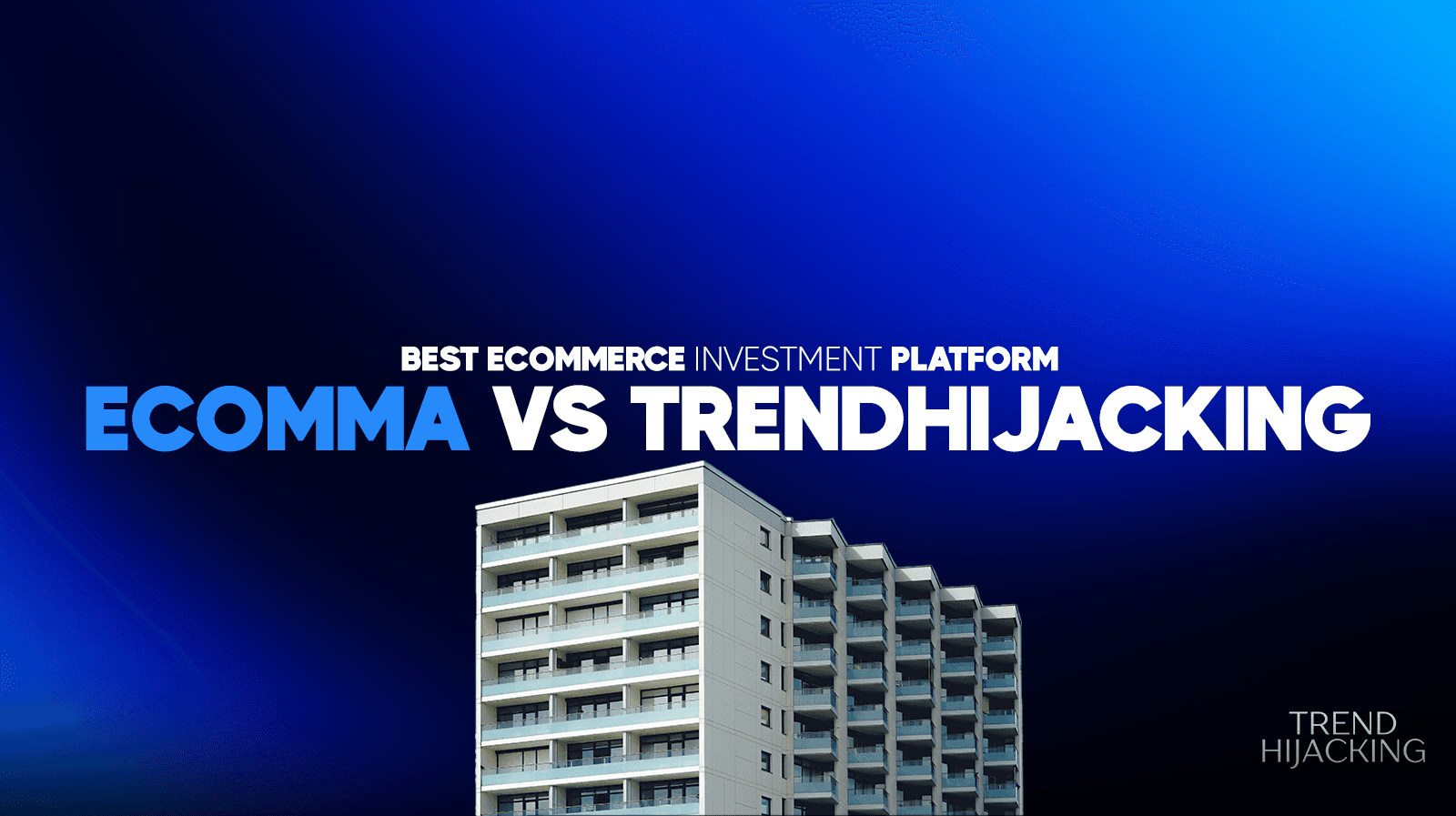Buying An E-commerce Business? Here's How To Avoid Overpaying:
Know How E-commerce Businesses Are Valued

You may not know this as an absolute beginner, but business owners use several methods to arrive at a selling price.
Let’s go through the most common methods below:
Revenue Multiple: This is probably the most common method. It multiplies a business’s yearly revenue by a number (multiplier), usually between 0.5 and 1.0. The method is common for businesses with steady sales but lower profits. For instance, an online store with a steady income may use a multiplier of 0.8.
The EBITDA Method: Some businesses use the earnings before interest, taxes, depreciation, and amortization (EBITDA) to value their businesses. In many cases, the multiplier for EBITDA ranges between 2.5 and 4.5. This method is highly suitable for businesses with consistent profits.
Discounting Cash Flow (DCF) Method: Some sellers may also use the discounting method, which involves calculating the present value of expected future cash flows. This method works best when an online business has steady and predictable profits.
Asset-Based Valuation: Yes, some sellers may also calculate the value of their businesses based on the assets minus liabilities. This method is useful for businesses with significant tangible assets.
Once you understand these methods of valuation, you’ll understand how sellers arrive at their asking price. Ultimately, you’ll avoid paying more than the business is worth.
We Help You Buy / Build, Manage and Scale E-commerce Brands for an EXIT
E-commerce Simplified for Busy Individuals – We handle the buying, building, and scaling, so you can focus on what matters.
Growth-Focused Strategies – From sourcing to marketing, we drive growth and prepare you for a profitable exit.
Expertly Managed Exits – We build a high-value brand designed for a Lucrative exit.
Check Financial Records in Detail

One of the most common mistakes beginner buyers make is not taking the time to go through the business’s financial records.
If you seriously don’t want to overpay for your next investment, be sure to ask the seller for detailed financial records.
Specifically, ask for:
Profit and loss statements
Balance sheets, and
Tax returns that cover several years.
Once you have these records, look for stable revenue growth and steady profit.
Data from reports show that businesses with a two- to three-year record of accomplishment are more likely to show reliable performance.
Be alert to any sudden spikes or drops in sales or profit, as they can indicate problems with the business.
DON’T forget to analyze the costs reported in the financial records, ensuring they’re in line with industry averages. These include:
Marketing expenses
Inventory costs
Operating expenses
Reliable data from sources in e-commerce have shown that many successful online stores maintain marketing expenses of 10 to 15 percent of their revenue.
BEWARE: Large spikes in spending can affect profits and reduce the value of the business. Closely examining these documents will help you avoid getting caught off guard by hidden expenses.
Check The Customer And Traffic Data

If you want to avoid overpaying for that Shopify or dropshipping business on sale, make sure to check where it gets its customers and even traffic.
A strong online business should have loyal customers and steady traffic.
Let’s discuss each of them separately:
Traffic Data
You MUST review data that shows where the traffic comes from. Look for organic search traffic, as it tends to be more stable and cheaper than paid advertising.
Market data shows that organic search traffic makes up about 40 percent or more of visits for many successful e-commerce businesses.
This number can help you gauge how well the business will perform over time.
Customer Data
Customer data is equally important… Does the business depend on a few major clients? If yes, it’s sitting on the edge of risk if those customers stop buying.
On the other hand, a wide base of small, repeat customers supports steady revenue.
Reports show that businesses with diverse customer sources tend to have lower risks.
Overall, studying the customer lists and traffic sources gives you a clearer picture of the company’s stability and growth prospects. And this helps you decide if it’s worth the asking price.
Understand the business operations and Processes

The daily work needed to run the online business is another important factor.
You must check if the current owner handles most tasks or if a team manages daily functions.
Data indicate that businesses that run with minimal oversight are in a stronger position for growth.
Ask the seller to explain all the steps involved in running their business, from order processing to customer service.
The idea here is to understand whether the process is smooth and if the current owner has built systems that work well.
You should also check if the business uses software for order management, inventory tracking, and email marketing.
Modern tools help with automation, which makes operations lean and efficient.
Many experienced e-commerce buyers agree that businesses with good online tools tend to have higher profit margins and are much easier to manage.
With a clear understanding of the day-to-day processes of an online store on sale, you get to see the true cost of running the business after you acquire it.
Study The Market and Trends

We also advise you to check the market before you take the plunge.
Look at the current trends in the e-commerce space and see how they impact the business.
Data from recent surveys show that the overall online retail market grows by more than 10 percent per year in many regions.
You must check if the business’s niche is growing or if it is in decline.
Seasonal changes may have a big effect on sales. Some e-commerce businesses have a peak season where up to 50 percent of their sales happen in a short period.
Get data on seasonal patterns, and be sure you include these trends in your future revenue estimates.
In addition, use reliable sources that track consumer spending online.
You can then use your findings to decide whether the business is positioned well for future growth.
We Help You Buy / Build, Manage and Scale E-commerce Brands for an EXIT
E-commerce Simplified for Busy Individuals – We handle the buying, building, and scaling, so you can focus on what matters.
Growth-Focused Strategies – From sourcing to marketing, we drive growth and prepare you for a profitable exit.
Expertly Managed Exits – We build a high-value brand designed for a Lucrative exit.
Do Proper Due Diligence

Due diligence is a thorough process that checks every part of a business before you buy it.
You must check the financial records, traffic data, customer lists, and contracts that the business holds.
Look at any supplier or contract agreements that the seller has in place.
Also, check if there are any legal matters or unpaid debts.
Perform an independent review.
Many buyers hire professionals, such as accountants or business brokers, to assist with checking data.
Recent surveys in the e-commerce sector reveal that up to 60 percent of buyers who made a habit of doing thorough due diligence were satisfied with their purchase.
Spending time and money on professional advice will save you money in the long run by preventing unexpected issues later.
NOTE that this process may take time, but it gives you a full view of the business.
You want to avoid shortcuts and get written records for all claims made by the seller.
This care helps you make a decision based on solid data and not just promises.
Related: How To Verify The Age When Buying An E-commerce Store
Use Hard Numbers in Your Negotiations

The negotiation part…where the real game begins!
We ALWAYS suggest entering any negotiations with clear numbers.
Data shows that many online businesses sell for a fraction of their revenue or profit in the first months.
When you have clear, verified numbers from the financial records, you can set a fair price. Use this data to make counteroffers and point out any areas that reduce the value.
You may also opt for the earnouts or performance-based deals. In this case, you pay less upfront and include a bonus if the business meets certain targets after the sale.
Create A Long-Term Plan for Your Investment

Before you acquire an established online business, you must know your long-term goals.
Do you want to run the business yourself, hire a manager, or blend it into another operation?
With a clear growth plan, you’ll likely see higher returns.
Ask yourself if you can invest time to improve the business or if you prefer a model where the business runs without much input.
A sensible plan can protect you against unexpected drops in profits after the sale.
With a solid strategy, you can also work on improvements that increase the business’s value over time.
Frequently Asked Questions:

How much do e-commerce businesses sell for?
E-commerce prices often vary based on key factors like revenue, profit, and growth. Small niche stores may sell for a few thousand dollars, while established businesses can reach several million dollars. The final price to expect depends on size, performance, and even market conditions.
What’s the best place to buy an e-commerce business?
The best places to buy an e-commerce business include online marketplaces and brokers that specialize in e-commerce. Websites such as Empire Flippers, FE International, and Exchange by Shopify offer you vetted listings with detailed data. These platforms help you compare options and assess value reliably.
Can I get an e-commerce business for sale under $10k?
It is rare but possible to find very small or starter e-commerce businesses listed under $10k. Such businesses often need substantial owner involvement, have lower revenue, and may carry higher risks. We strongly suggest conducting your research and due diligence before purchasing such a business.
Conclusion
Buying an e-commerce business can be a great investment if you do it carefully. We advise you to take your time to understand how these businesses are valued, study the financial records, analyze customer sources and traffic data, evaluate operations, consider seasonality, perform due diligence, and negotiate the price. If you follow these steps, you can avoid overpaying and make a smart acquisition.
If the process of buying an e-commerce business feels overwhelming or time-consuming, our Acquisition Program can assist you. We can help you identify high-potential e-commerce businesses for sale, conduct thorough due diligence on your behalf, and negotiate favorable the best prices. Post-acquisition, we support you in scaling the business (up to 10x) to maximize profits, preparing it for a potential future sale.
For more information, check out our Acquisition Program and start your journey toward owning a profitable e-commerce business.
A Done-For-You E-commerce Business
Discover how we Build, Launch, and Scale a 6-figure/month Business for You
Learn more
The 6-Step Blueprint to E-Commerce Acquisition
See how we Acquire, Convert, and Scale with Real Case Studies to Prove It.




















